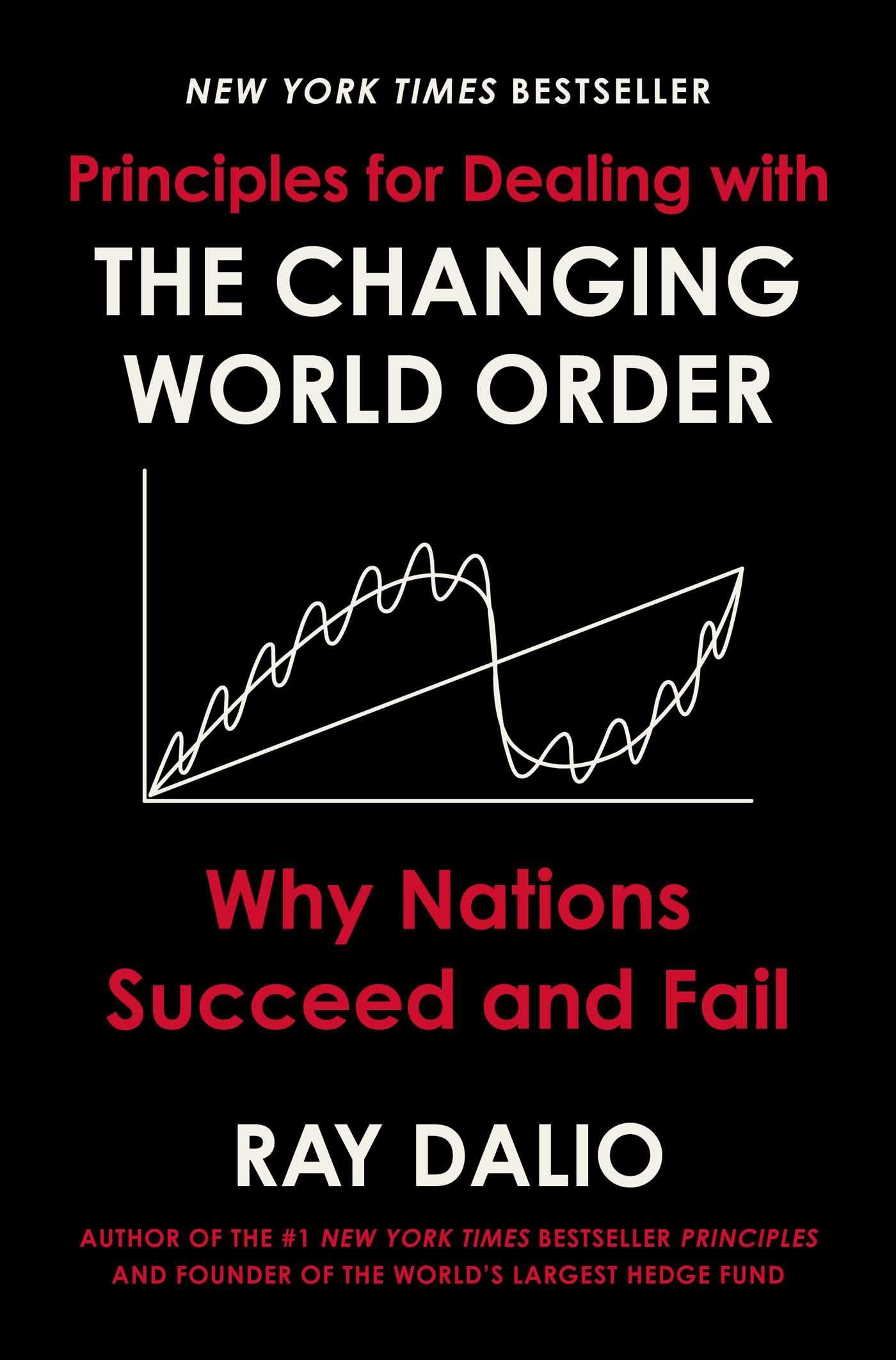The Rise and Fall of Nations
Hello, I hope that your summer is off to a great start.
As shootings plague our communities, there is a growing sense that America is struggling and in decline. That our best days are behind us and that we are unable to rise to the challenges of this time.
One of the world’s greatest investors, the founder of Bridgewater and #1 NYTimes Bestselling Author Ray Dalio, recently wrote a book, “Principles for Dealing With the Changing World Order: Why Nations Succeed and Fail” that tries to place our current challenges in context. Where are we in the long-term?
Dalio posits that there are 3 concurrent megacycles working against the United States at present: the end of a huge credit cycle, the latter stages of an internal order/disorder cycle, and the relative rise and fall of great powers.
First, the credit cycle. Inflation dominates our headlines and our daily lives. Ray describes 6 stages of a credit cycle that typically play out over 50 to 75 years – he believes we are in Stage 5 of this particular cycle which includes rising debts and increased money supply. As public debt goes up, there are four approaches that policymakers can take:
1. Austerity
2. Debt defaults and restructurings
3. Transfers of money (e.g. raising taxes)
4. Printing money and devaluing it.
Ray suggests that #4 is always the politically easiest path, and the US is currently on this path. He cites a striking statistic that of the roughly 750 currencies that have existed since 1700, only about 20% are still in use, and all of them have been devalued.
The U.S. has a distinct advantage of having its dollar as the global reserve currency. However, Ray says that historically, capital has found its way out of a currency into other stores of value even if another reserve currency hasn’t been available, and that some form of devaluation of the dollar seems unavoidable. In our interview, Ray predicts both a recession and some very difficult adjustments.
The second megacycle will be familiar to many of you: it’s what Ray calls the cycle of internal order and disorder. This describes the rising and falling integrity of the American political system. Again, he believes that we are in Stage 5 of a 6 stage cycle, with Stage 5 denoting ‘the Decline’ that includes bad financial conditions and intense conflicts.
Polarization is at historic levels. “History has shown us that greater polarization equals either (a) greater risk of political gridlock, which reduces the chances of revolutionary changes that rectify the problems or b) some form of civil war/revolution.” Ray stipulates that “the odds of the US devolving into a Stage 6 (civil-war-type) dynamic within the next 10 years are [around] 30 percent . . . a dangerously high risk that must be protected against.”
Read that again; perhaps the world’s most successful investor projects a 30% chance of a civil-war-type situation in the United States within 10 years. During our interview, he said, “the odds are higher now” than when he wrote those words in 2021. This seems like headline news to me and a call to action.
Ray has also argued that there is a need to declare a national emergency to reform capitalism because the benefits of increased productivity are not being shared with the bottom 60%. “I really got it when I saw that if you were in the bottom 60% you weren’t experiencing” the rise in productivity, Ray said in our interview. This also struck me as headline news. Ray writes, “To have peace and prosperity, a society must have productivity that benefits most people. Do you think we have this today?”
The third megacycle is the external order and disorder cycle, which in this case is the US in relative decline while China is rising. Ray believes that this will lead to increased friction between the two countries in terms of economic, technological, capital and geopolitical competition and conflict. The major question is whether this will escalate into a hot or shooting conflict, which is something that the world would vastly prefer to avoid. “The only thing that most informed people agree on is that such a war would be unimaginably horrible,” Ray writes.
These challenges are obviously massive. “There will be a battle between humanity’s inventiveness and these . . challenges.” Which will prevail?
We certainly have our work cut out for us. On American politics, Ray writes that “The [peaceful prosperous] path requires a ‘strong peacemaker’ who goes out of their way to bring the country together, including reshaping the order in a way that most people agree is fair and works well. There are few such cases in history. We pray for them.” Can America produce the kind of leadership that will help us avoid some of the historical patterns that Ray lays out? A lot is riding on our answering yes to that question – perhaps the fate of the country.
To listen to my interview with Ray click here and for his video on his latest book click here.

